YouTube Quietly Updates Content Policy to Address Abuse of Legal Substances
By Kayla Zhu
Updated September 25, 2025
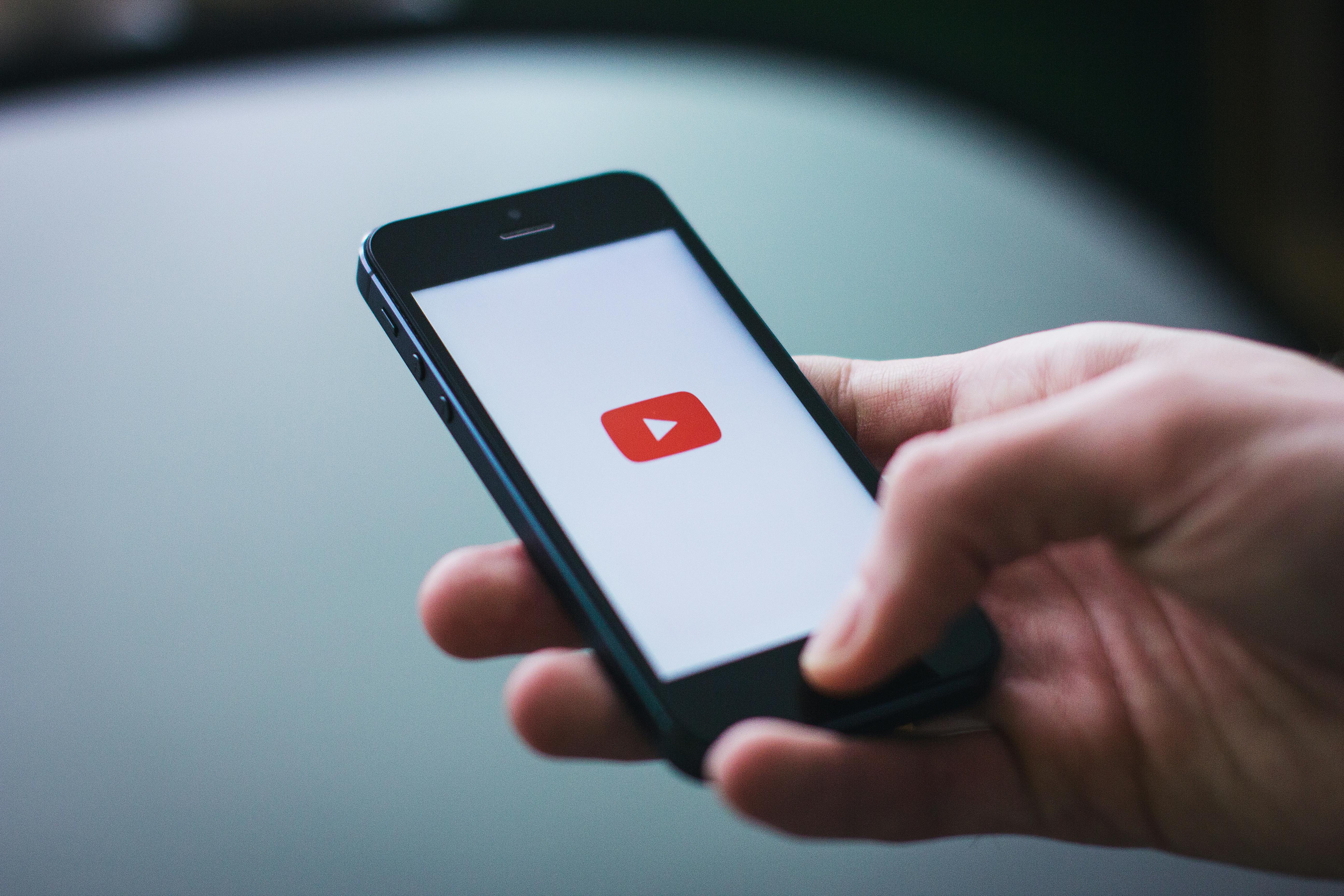
Introducing Freshpings, a new content series from Visualping.
Important stories and interesting insights often start with a small, quiet change on a website, a new line in a policy, a deleted name, or an updated price.
In this series, we'll share some interesting web changes detected via Visualping and explore the bigger story they might be signalling.
Follow us on LinkedIn to follow our Freshpings series.
What changed?
On Sept. 22, 2025, Visualping detected subtle updates to YouTube’s regulated goods and services policy.
Specifically, a new line was added to the policy that prohibits content that facilitates access to “non-regulated substances for the purpose of abuse.”
Examples of types of content depicting the misuse of "non-regulated substances" were also added to the page, including:
- “Selling inhalants” including hydrocarbons, nitrites, and nitrous oxide was added to the list of examples of content that's not allowed
- "Displays of inhalant abuse" including "Non-educational content that shows the abuse of inhalants like huffing glue, whippets, or poppers" was also added to the list of examples
Check out the changes below, or on Visualping's platform.
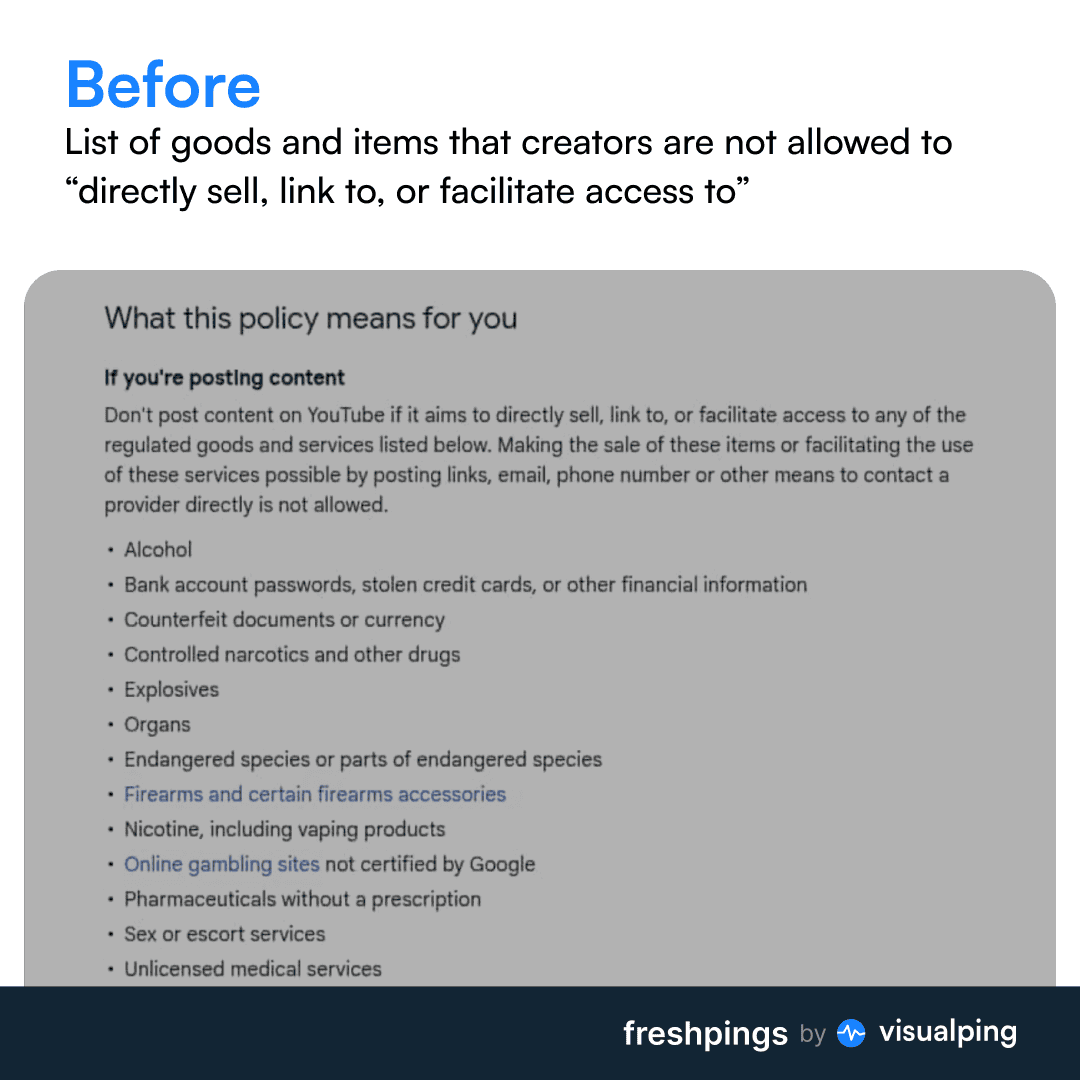
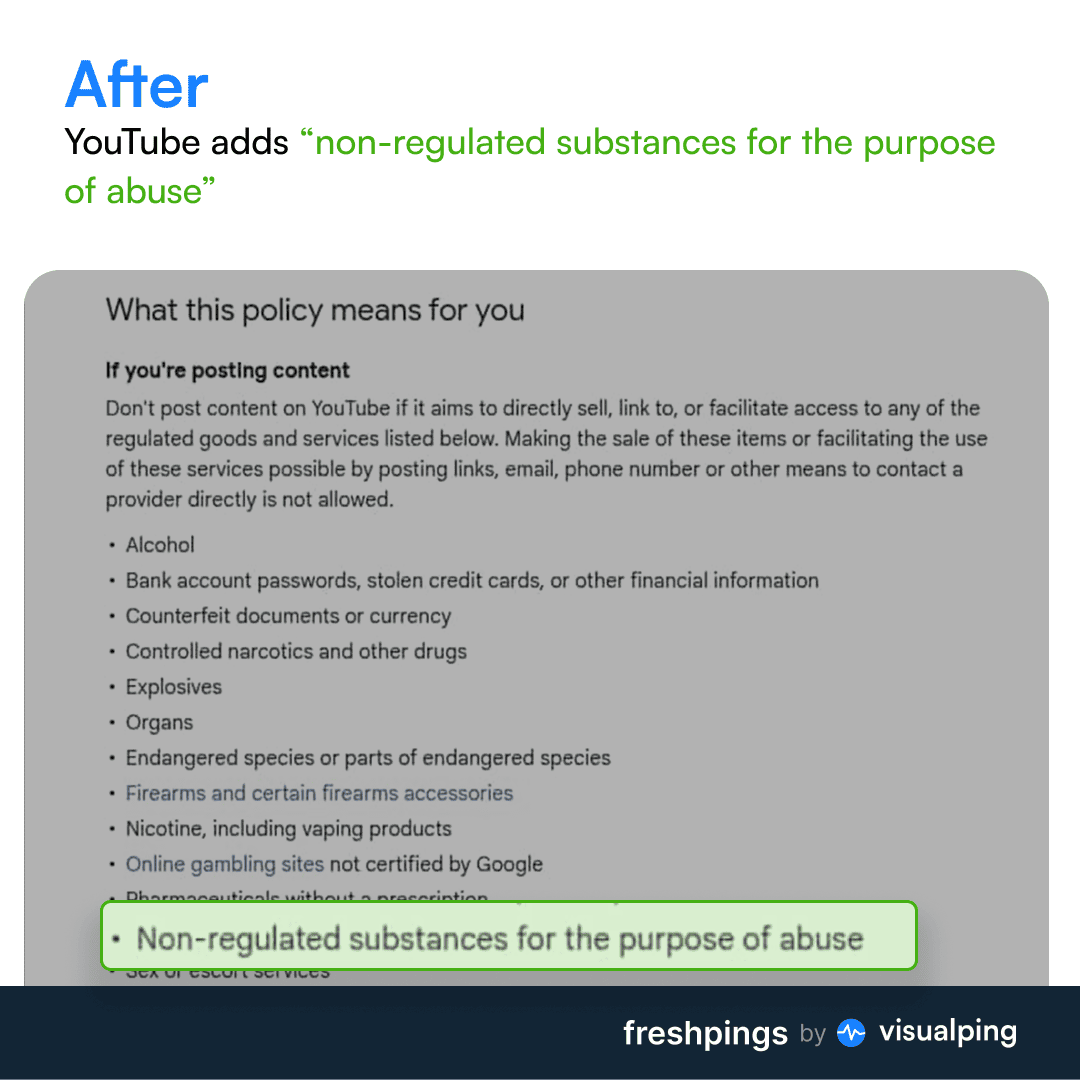
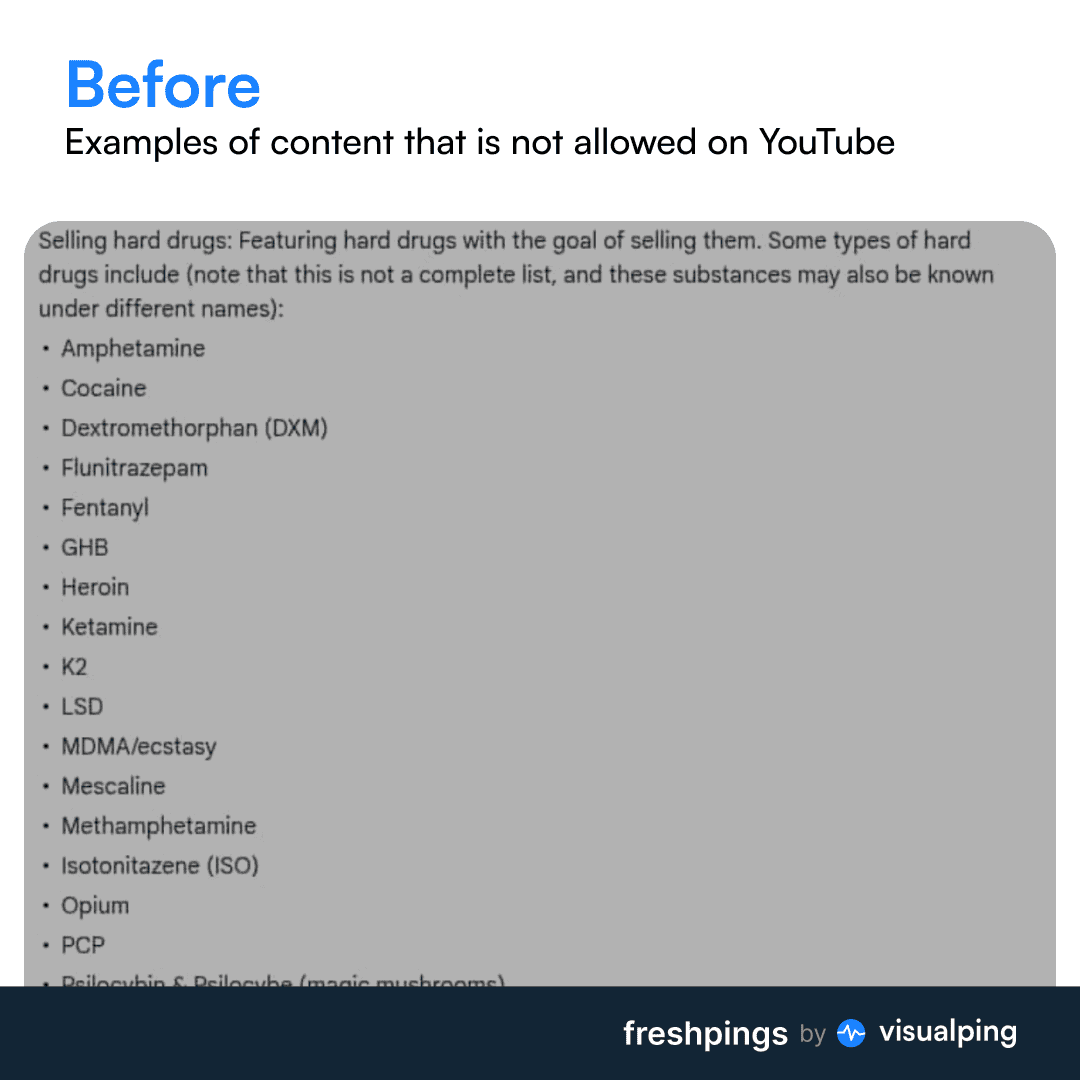
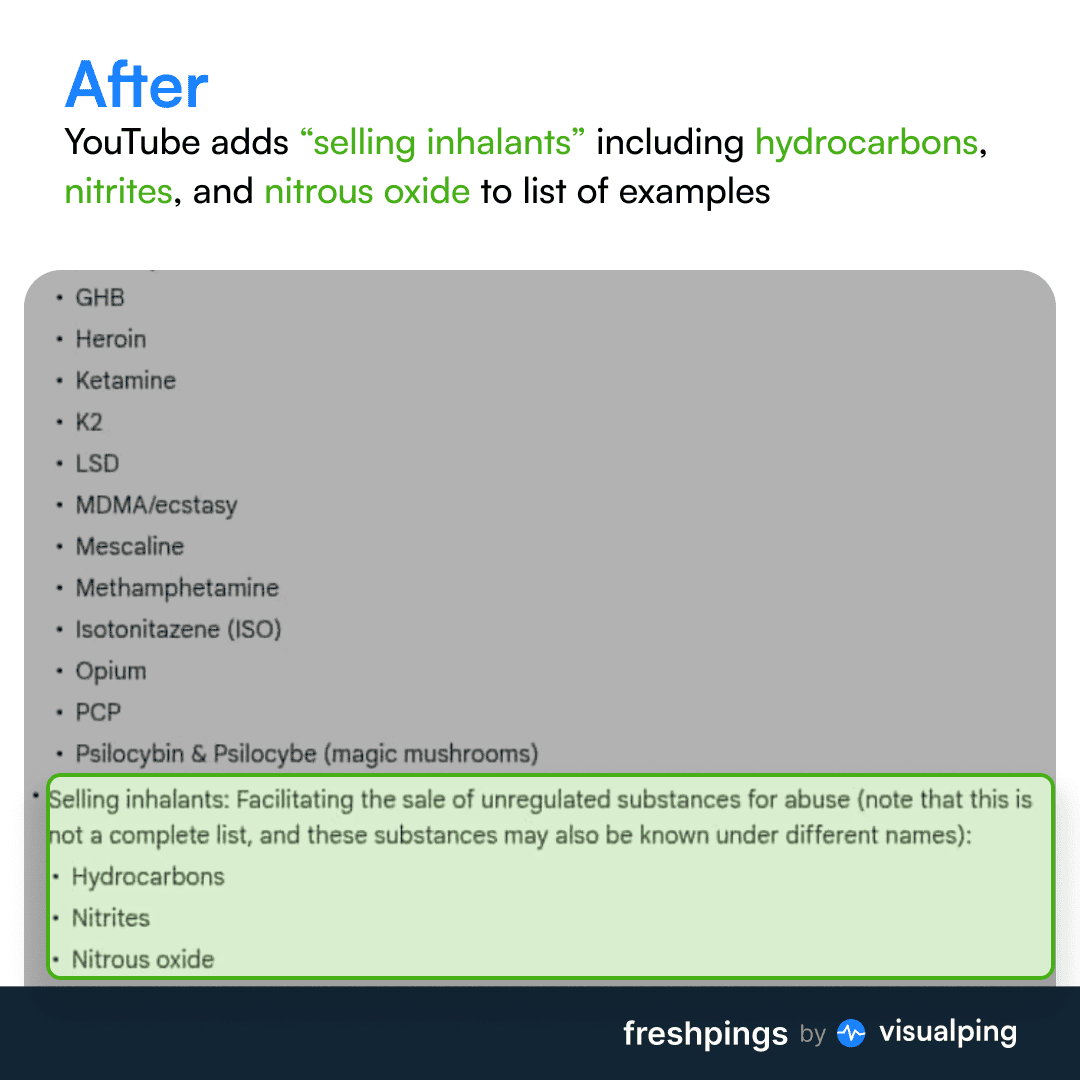
Why this matters
Behind the "Galaxy Gas" trend
The rising popularity of abusing these types of legal substances, especially among young adults fueled by viral social media trends has raised public health concerns due to their easy accessibility and potential for serious harm.
On TikTok and other social media platforms, videos of young adults inhaling nitrous oxide canisters called "Galaxy Gas" to get high have gone viral. Galaxy Gas is a brand of whipped cream canisters that come in flavors like "watermelon lemonade smoothie" and "strawberry cream", and are intended for culinary use.
The trend of inhaling nitrous oxide canister products has prompted the FDA to issue a warning about these products.
The effects of repeated inhalation include a range of symptoms and serious health problems, from prolonged neurological effects like spinal cord or brain damage, and in some cases, death.
A 2025 study found that deaths "attributable to nitrous oxide poisoning" among people aged 15 to 74 years in the U.S. spiked by 578% between 2010 and 2023.
Social media platforms respond with stricter content rules
In response to this alarming public health trend, some social media platforms like YouTube have updated their content polices to specifically ban content that promotes the dangerous misuse of products that are legal to purchase.
TikTok also bans content that depicts or promotes the misuse of nitrous oxide/whippets, under its Community Guidelines.
For YouTube, these additions reflect the company's position on restricting content that promotes harmful substance abuse and are designed to protect users from dangerous behaviors involving otherwise legal items.
Updates like these to platform content moderation policies signal a broader trend where major platforms are taking more responsibility for harmful content that exists in legal grey areas.
Detect important changes with Visualping
Important policy changes are often made without a major announcement.
Monitor the pages that matter to you with Visualping and get alerted to the changes that could impact your business or community.
Want to track the changes that matter to you?
Paste any URL into Visualping, highlight the price, write your prompt, and turn on alerts.
Kayla Zhu
Kayla is the Public Relations Specialist at Visualping. Her background is in data-driven journalism, and she has previously worked at various media outlets. In her spare time, she enjoys catching a film at her local cinema, playing ultimate frisbee, and making very specific Spotify playlists.